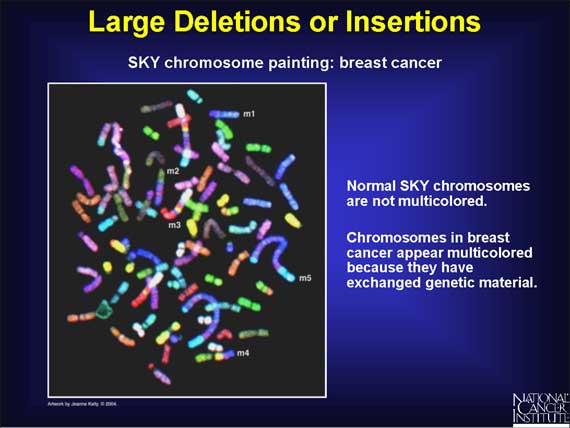|
Large deletions or insertions in a chromosome also may lead to cancer. These may occur during mitosis or during recombination in meiosis. Translocations occur when segments of one chromosome break off and fuse to a different chromosome, without any loss of genetic material. Many of these have been found to enable tumor development. Inversions are mutations that arise when two breaks occur in a chromosome and the piece is reinserted in reversed order. Other chromosomal abnormalities include nondisjunction, the failure of the homologs (chromosome pairs) to separate as new cells divide. Source: Ried Lab, NCI

< Previous | Index | Next Slide > |